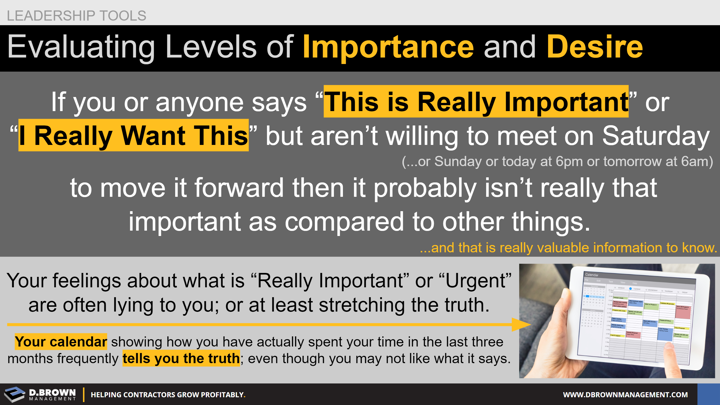If anyone says anything like "This is really important" or "I really want this" but aren't willing to meet on Saturday (or Sunday or today at 6PM or tomorrow at 6AM) to move it forward, then it probably isn't really that important as compared to other things.
...and that is really valuable information to know.
It's even more valuable to know yourself:
Your feelings about what is "Really Important" or "Urgent" are often lying to you, or at the very least, stretching the truth.
Your calendar shows how you actually spent your time over the past three month. This is where you'll frequently find the truth, even though you may not like what you see.
Looking back at what you have really accomplished matters - it's your SAY/DO ratio. Anything over 1.0 means you are talking more than you are doing.
- Remember that consistency is a key to building trust.
- Remember that trust is what holds teams together, builds companies, and enables successions.
- Remember that talking about what you are going to do stimulates your brain the same way as actually accomplishing things - without having to do the work or wait for it to be done.
- Remember that the ability to delay gratification is one of the biggest predictors of success.
- Remember that discipline is what gets things done when you aren't motivated.
- Remember that when your words and actions are aligned is when you will be the most joyful.
Do you have the "5th Knot" level of desire? Most of us probably fall well short of that bar, but it is important to keep that in mind when evaluating the true desire and importance of accomplishing something.
"We have a strategic plan -- it's called doing things."

